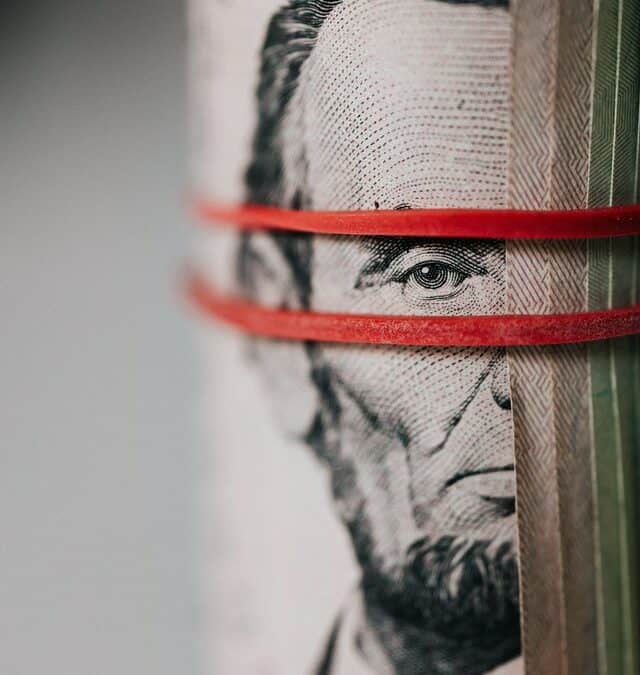The Physician Philosopher Podcast
TPP 81: The Opportunity Cost of Emergency Funds for Doctors
We have discussed emergency funds before, but now we are talking about the opportunity cost of an emergency fund for doctors. Today’s thought is that the purpose of an emergency fund is to be separate, accessible, and available when you need it while limiting your opportunity cost. Lisha and I discuss whether an emergency fund is worth it, and what that looks like for a doctor from residency to attending.
Emergency Fund Basics
As we all know, cash is king. Cash is king because it prevents you from relying on credit or cashing out your investments. An emergency fund is essentially cash for those unexpected expenses that will happen. Having one eliminates financial stress. You will know that you have the money if an emergency occurred, and you needed to access the money quickly. There are some things that Dave Ramsey teaches that I don’t agree with, but he is where I first heard about emergency funds. He recommends three to six months of living expenses to bridge the gap if you lose your income.
Lisha found the same information from Dave Ramsey, but at a different level. In the Total Money Makeover, the first step is to save for an emergency fund. The goal is to start with $1000. She believes in being HOT (humble, open, and transparent), and admits to having credit card debt from moving to DC and taking a job where she couldn’t make ends meet. She used her credit cards to bridge that gap and had over $10K in debt because of it. It wasn’t from splurging on cars, vacations, or even eating out. It was from expenses that came up that she just didn’t have the money for. She needed new tires, a new phone, and a new computer for school. A family emergency required air fare too, and that all went onto her credit cards.
When financial emergencies happen, they always seem to happen with multiple things at a time! It is never just one thing that happens, and if you use a credit card, it accumulates very quickly. All in all, an emergency fund is to cover unforeseen expenses that will undoubtedly occur. It is being prepared for the unexpected because life will always throw you curveballs. I had to replace two $5K AC units shortly after I bought my house and luckily, I had my emergency fund to pay for them.
Amount to Have in an Emergency Fund
When you start building your emergency fund, the financial goal is to save up three to six months of your income. Of course, this might not be possible at first, but something is better than nothing. As a resident, Lisha started with $1000. If something major happened in her life, $1000 would cover all or most of it. Is it realistic to be making maybe $50-$70K as a resident and pay for basic living expenses while saving three to six months’ worth of income? For some it is, for others it isn’t. That is why $1000 is a good starting point.
While this might not seem possible to most people, if you look hard at your expenses for the past three to six months and be honest with yourself, you will see that all your expenses weren’t necessary. If you take one expense here and one expense there and instead put that money into savings, you can build up to $500, then $1000. You can put more money into savings than you think just by focusing and limiting the things you buy or do that aren’t necessary.
Where to Keep Your Emergency Fund
With inflation being 8-9% it is easy to question whether keeping your emergency fund in a regular savings account is the best option. When you do, the money is losing value every day because of inflation, but what are the other options? The first thing to consider is that your emergency fund should be readily available to you. Lisha keeps hers in a traditional savings account at a separate bank than she uses for her regular banking. She does this to remove the temptation to use it for other things. If it is too easy to access, it is easily used and promised to be returned, but never actually gets returned. I also have a regular savings account, but at the same bank as my other accounts. It depends on your personality on where your emergency fund should be in relation to your other accounts.
I have started questioning if a regular savings account is my best choice. Other options can be a high-yield savings account, a brokerage account, a Roth IRA, CDs, I Bonds, and other investment accounts. CDs, I Bonds, and some other investment accounts may not be readily available, and you won’t be able to access the money when you need it. Other accounts, such as a brokerage account or Roth IRAs change with the stocks. This means that when you need the money it might not be the best time to take out the money, like when the stocks are down.
This recently happened to Lisha. While she has the $1000 emergency fund, she also has investments in a Roth IRA with the plans to use that money to fund a specific thing. When she was ready to use the money, the stocks were down, and she would lose money if she removed it right then. The options were to take it out with a loss, find a different way to fund it, or wait until the stocks went back up.
The Best Choice for your Emergency Fund
How do you determine the best option for you? It all depends on your situation. If you are an attending physician, you may be thinking that by putting that money into a regular savings account that you are losing money due to inflation. The reality of it will depend on your situation and if you have other assets that you can tap into for the couple of days that it will take to access the money if you put it into a brokerage account. Basically, anything that happens I probably will not need to access all the money within 24 hours. But when your rent is $3000-$4000, the gas prices are high, the food prices have increased, and you are a resident, it can be hard to come by the money you need, but it is the most important time to save it and have it easily accessible.
As an attending you can cash flow unexpected expenses like a new phone, tires, or a laptop. What constitutes as an emergency changes, and how much you need changes. When you are at a point in your life where you have tens of thousands of dollars in an emergency fund, is it worth it?
Opportunity Cost
Opportunity cost is a double-edged sword. If you leave your money in a savings account, you are missing out on potential growth. If you invest it, you are missing out on the opportunity to access it easily and the market could be at a low and could actually cost you money when you need it most. Either way you will have opportunity cost.
Because of my situation, I feel that I don’t need more than three months of expenses saved since I rarely tap into it. As an attending physician I can deal with emergencies with cash flow. Once you get to a point where you have a gap in what you earn and what you spend, then you can turn things off that you might be investing in and cash flow it that month. Instead of investing that amount of money into an investment, you take it and fund the unexpected expense for the month. Your personal situation will determine how much you should keep in your emergency fund, and where you should put it.
Ready to get ahold of your finances? Join our two-day Financial Freedom Workshop for Physicians to learn how to create the financial freedom you deserve! Go to the link above and download your toolkit. Remember, an emergency fund is to be separate, accessible, and available when you need it while limiting your opportunity cost.
Subscribe and Share
If you love the show – and want to provide a 5-star review – please go to your podcast player of choice and subscribe, share, and leave a review to help other listeners find The Physician Philosopher Podcast, too!
TPP
You might also be interested in…
The Arrival Fallacy
We all have ideas of what happiness looks like. We say things like, “when ___ happens, I’ll be happy.“ This is called the Arrival Fallacy. Today we’re going to talk about to find true happiness.
5 Steps to Lose Weight with Dr. Ali Novitsky
Have you ever wanted to lose weight (or get a six-pack) but it always felt too hard to get it done?
As a life coach for women physicians, Dr. Ali Novitsky shares her insight and expertise to show us how to achieve optimal health with simple strategies backed by science.
Creating Healthy Boundaries with Technology
Business culture indoctrination often means we find ourselves believing we need to hustle 24/7 to get results, but it doesn’t have to be that way.What’s really important about today’s episode is understanding how we can use technology not to worsen our constant availability – which can lead to burnout – but instead how to use that technology to set boundaries.






0 Comments